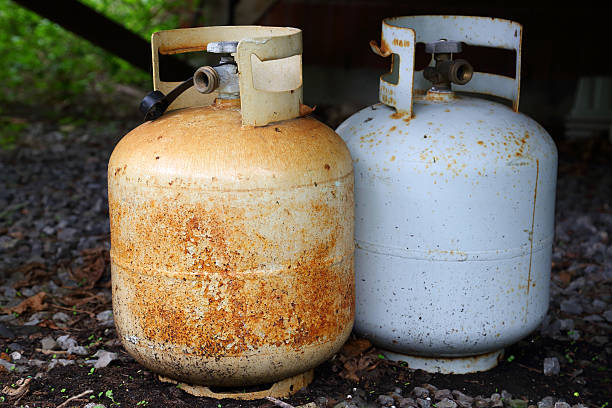Rusty Tanks, Real Risks: Why Proper Cylinder Recycling Matters

Fuel cylinders play a big role in the propane business. We rely on them every day to store and transport gas safely. But once they’ve reached the end of their life – or are damaged or unsafe – they can’t just be tossed aside. That’s where cylinder recycling and remediation come in. These are not only important for safety and legal reasons, but they also help your business run more smoothly and protect the environment that your customers care about.
If you’re in the propane industry, chances are you’ve dealt with old tanks before. Maybe you’ve seen cylinders collecting rust behind a building or sitting forgotten in a service truck. Knowing how to handle these properly is a necessary part of the job. Let’s take a closer look at how recycling and remediation work, and how getting it right can keep your operation safe, legal, and ahead of the curve.
Why Cylinders Need Proper Recycling
Cylinders are made of steel or aluminum and built to handle pressure. But over time, they do wear out. Dents, corrosion, and expired certifications make them unsafe to refill or reuse. That’s why these cylinders need to be removed from circulation and processed the right way.
Recycling makes it possible to break down the cylinder into reusable parts. The metal can be melted down and used again, which keeps waste out of landfills and cuts down on materials that would otherwise be thrown away. More importantly, recycling reduces the chance of accidents from improper storage or illegal dumping.
What Remediation Means
Remediation is the process of making sure cylinders are completely safe to recycle or dispose of. This includes removing any remaining gas, depressurizing the tank, and cleaning out any residue. Some tanks may also need to be flushed or vented to remove chemicals that build up over time. If the tank has a damaged valve or leaking seal, this has to be addressed before it’s sent off for recycling.
Doing this the proper way takes training and the right tools. It’s not something to take lightly. Improper remediation can lead to serious risks, including fire, explosion, or gas exposure. That’s why businesses need a reliable process in place – and the people who know how to follow it.
How to Handle Cylinders the Right Way
If you’re running a propane business, you should have a clear system for identifying and collecting used or damaged cylinders. This might mean regular inspections of tanks in your yard or a system for drivers to tag cylinders that are no longer safe.
Once you’ve got them, the next step is deciding how they’ll be recycled or handled. Some companies partner with licensed recycling facilities that handle everything. Others choose to do the basic remediation work in-house and then send the cleaned tanks out. Either way, keeping accurate records helps protect you and shows you’re doing things by the book.
You should also train your team to handle these cylinders with care. Label them clearly, store them in a safe spot, and don’t let them pile up. A clean, organized workspace helps prevent mistakes and sends the message that safety matters.
How This Helps Your Propane Business
Taking care of cylinder recycling and remediation is a sign that your business is serious about safety, being responsible, and protecting the environment. Customers trust businesses that do things the right way. When they see that you’re keeping your lot clean, handling old tanks properly, and staying ahead of safety rules, it builds confidence in your brand.
It can also save you money. Letting damaged tanks pile up creates both clutter and risk. On the other hand, staying organized reduces downtime, keeps staff safe, and avoids fines or penalties from regulators.
Most importantly, managing old fuel tanks properly shows pride in your work. And in the propane industry, where word-of-mouth referrals still matter, that can go a long way. Cylinder recycling and remediation may seem like small, insignificant components of your operation, but when they are done the right way, they help build a stronger, safer business from the ground up.














